32 ways to raise a happy and healthy kitten

If you’ve just welcomed a new bundle of fluff into your family, then reading up on ways to raise a happy and healthy kitten is likely high on your priority list. Cute, cuddly, and oh-so-soft, kittens are irresistible, so it’s no wonder you want to start their life off on the right paw to keep them around for as long as possible.
While there are some obvious things you can do to nurture your little one’s physical and mental well-being, like investing in the best kitten food and toys, there are plenty of other ways to ensure your kitten thrives that you may not have thought of — like brushing their teeth, for example!
It can be easy to feel overwhelmed with all the things to consider when you get a new kitten but rest assured, all of the tips on this list have been chosen for their simplicity, meaning you’re not going to have to spend a lot of time or money to give your feline friend the best start in life.
So, without further ado, here are our favorite ways to raise a happy and healthy kitten (spoiler alert: number eight is a game-changer!)
1. Spend lots of time playing with them
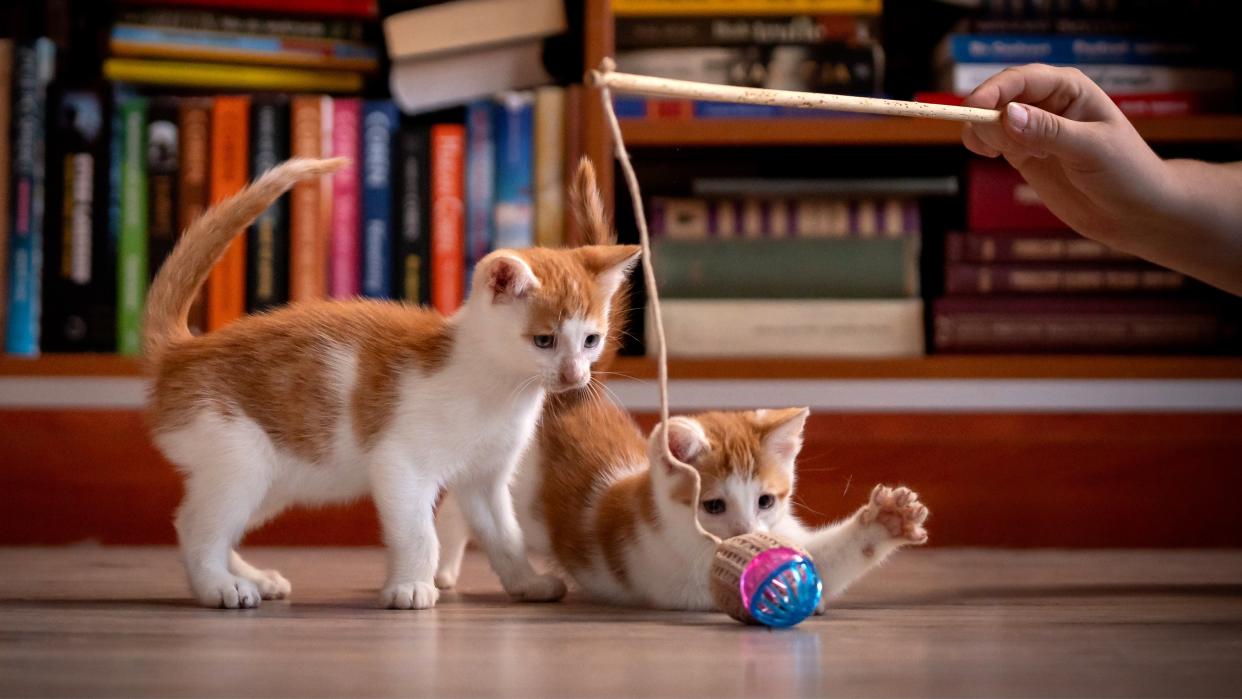
Learning how to play with a cat is one of the most important things you can do when it comes to raising a happy and healthy bundle of fluff. Kittens learn so much through play, including boundaries and communication, and regular sessions with the best kitten toys also provide them with an outlet to express their natural hunting instincts. Playing with your little fur friend is also a wonderful way to strengthen your bond — just in case you need an extra reason!
2. Invest in good nutrition

You don’t need to spend a fortune when it comes to kitten food as there are a lot of reputable brands out there offering products at an affordable price. However, what you do want to check is the ingredient label to ensure that whatever food you select is high in protein and fat — two macronutrients kittens require a lot of to ensure their brains and bodies have the fuel needed to grow.
3. Train them
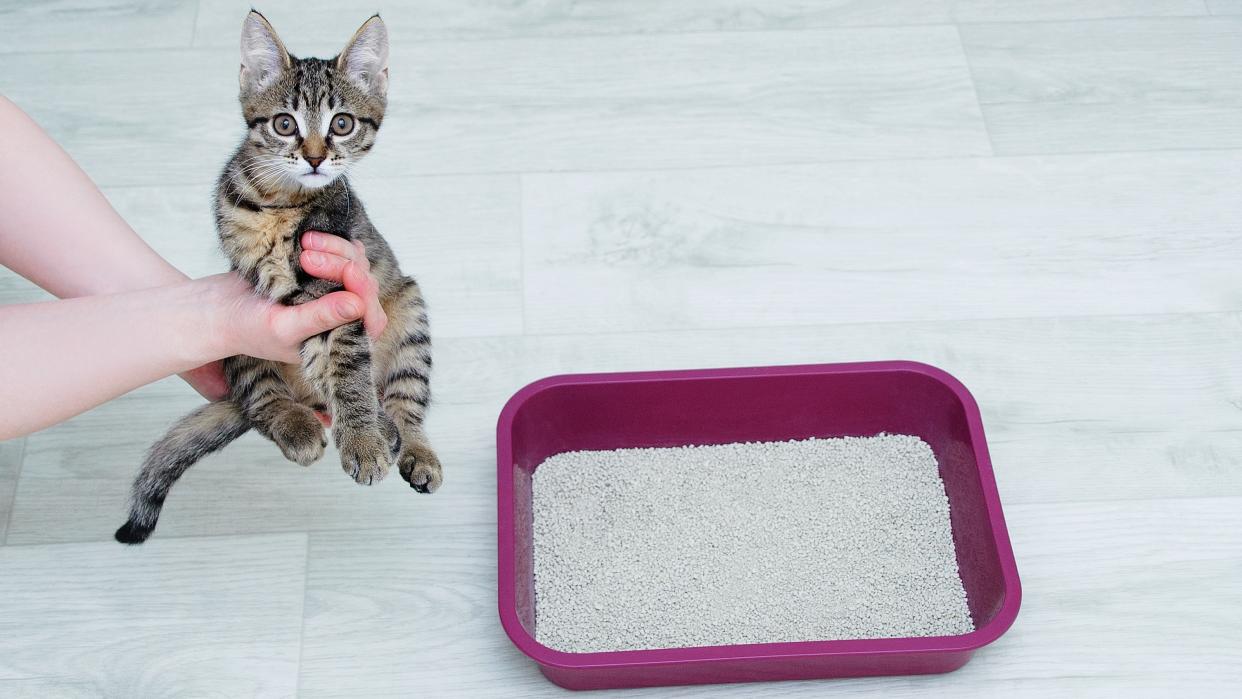
When it comes to kitten training tips, there’s one we always recommend — start early! Whether you’re wanting to socialize them, teach them to use their litter box, or train them not to scratch the couch, don’t get sidetracked by how cute your kitten is in their early days. Instead, remember that you’re going to have your feline friend for the rest of their life, so take steps early to ensure they know what’s expected of them.
4. Never punish your kitten
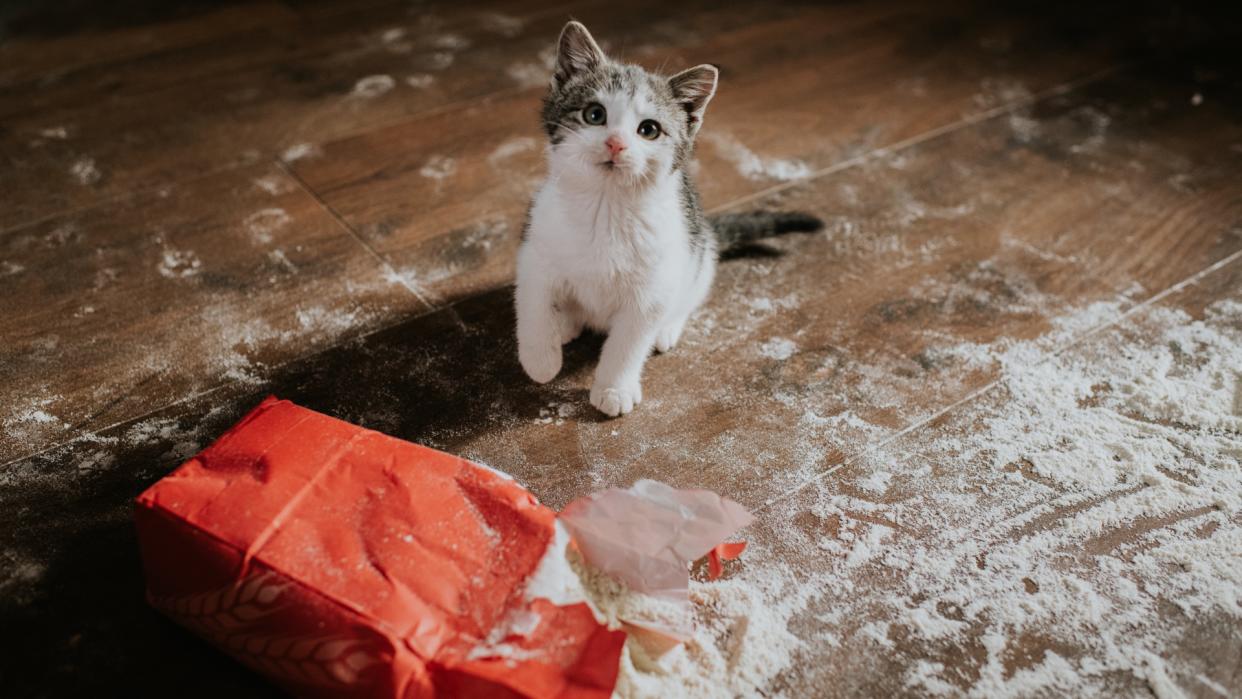
It’s really important that you don’t punish your kitten if they make a mistake. Cats don’t respond well to negative reinforcement, so speaking harshly, tapping them on the nose or squirting them with water, will only damage your bond. Instead, when your kitten does something you do like and want them to repeat, be sure to positively reinforce the behavior with praise and the best kitten treats.
5. Make gradual introductions
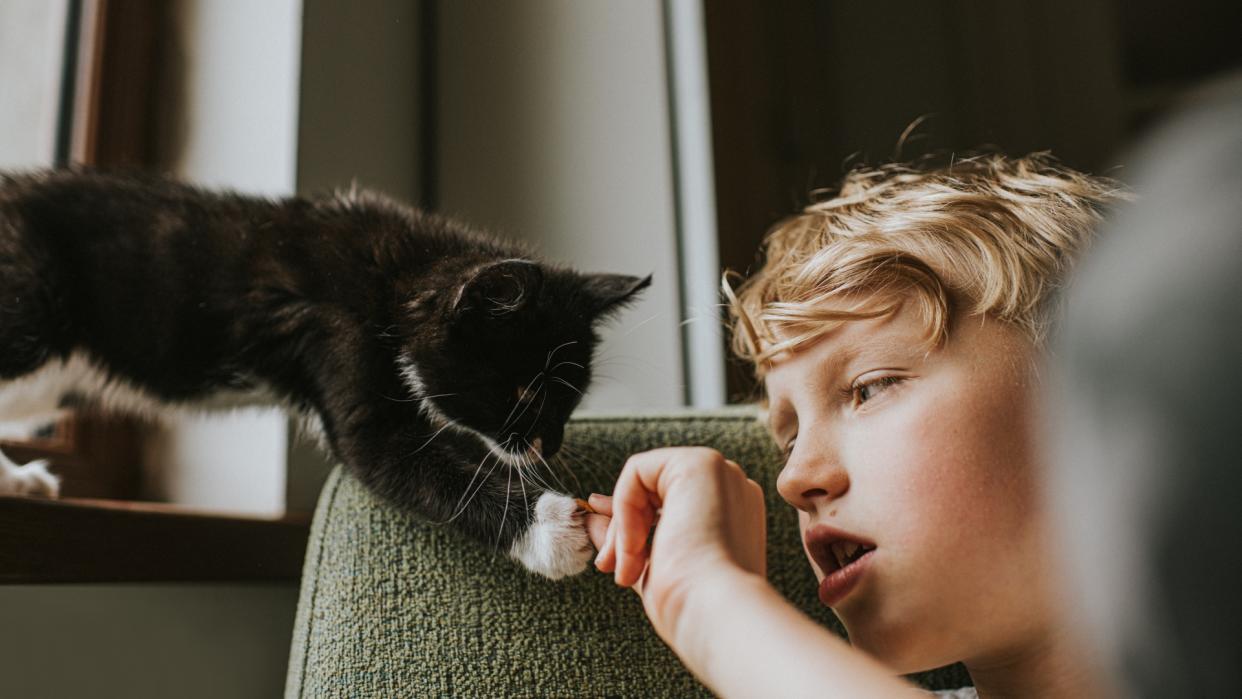
If you have other household pets, introducing them slowly can help everyone get used to each other without too much pressure. Keeping them in separate rooms initially and then gradually bringing your pets together for supervised meetings can be a wonderful way to help them get off on the right foot. Check out guides on how to introduce a kitten to a cat that has lots of useful tips to ensure things run smoothly.
When it comes to children, we also recommend making introductions slowly so as not to overwhelm your kitten. It can be worth having a chat with your child about how to behave respectively around their new friend to maximize the chances of everyone getting along.
6. Slowly get them used to touch
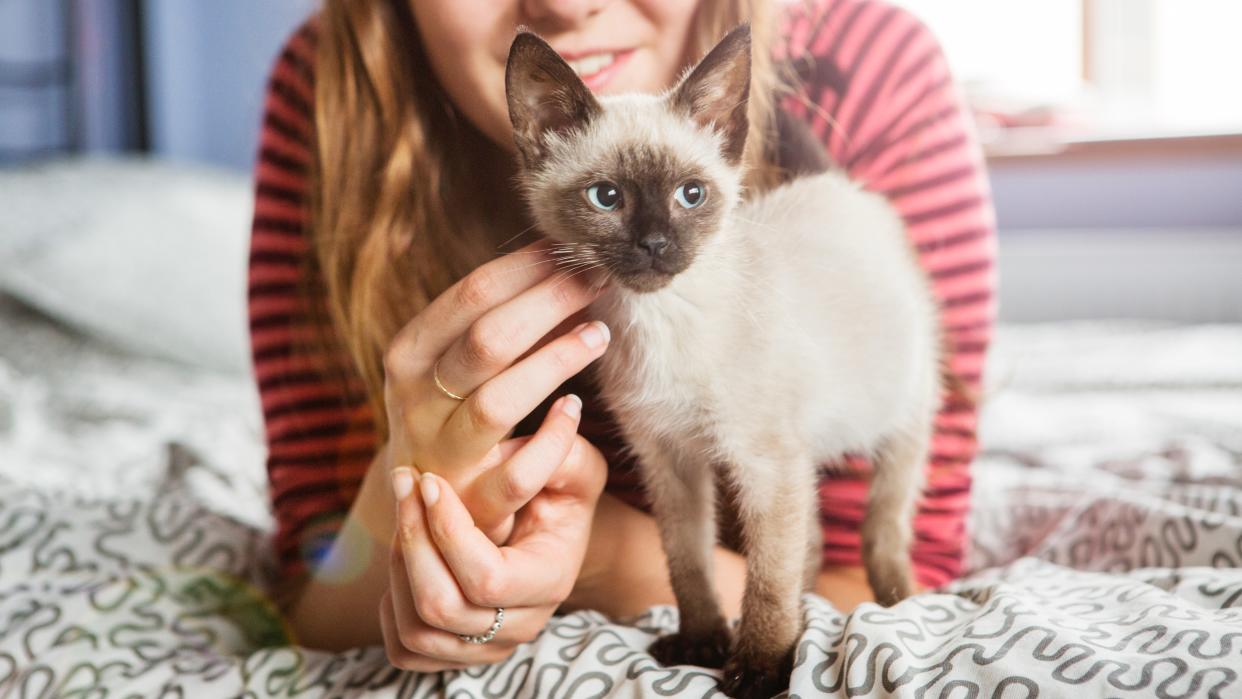
Gently pet your kitten on their belly, legs, paws, and chin as this will help them to learn that touch is safe. The more gentle touches you give them, the more your little fur friend will trust you — it’s also a wonderful way to start them off on the path to healthy socialization.
7. Brush them regularly
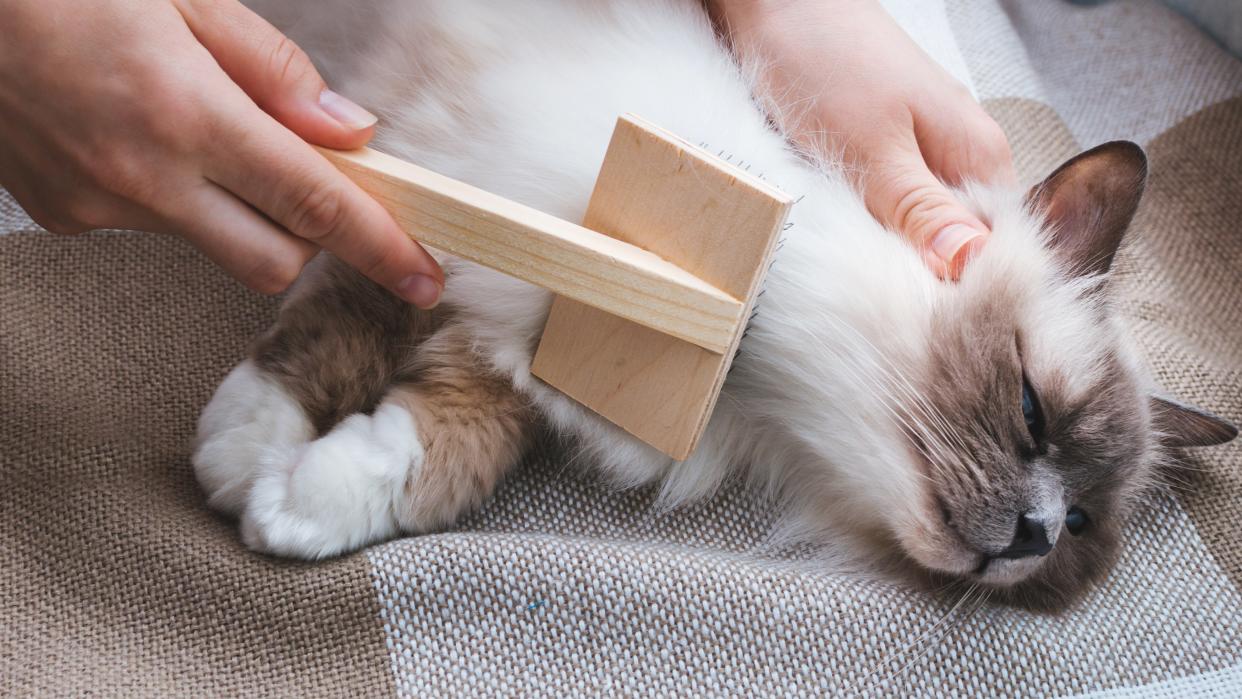
Start brushing your kitten with one of the best cat brushes, as soon as you’ve welcomed them into your family as this will help to normalize the process and prevent problems later on.
This is especially important for long-haired breeds whose fur is prone to mats and tangles. It’s also well worth adopting the same approach with their teeth. Use a finger brush and some pet toothpaste to get your kitten used for dental care.
8. Hold your kitten often
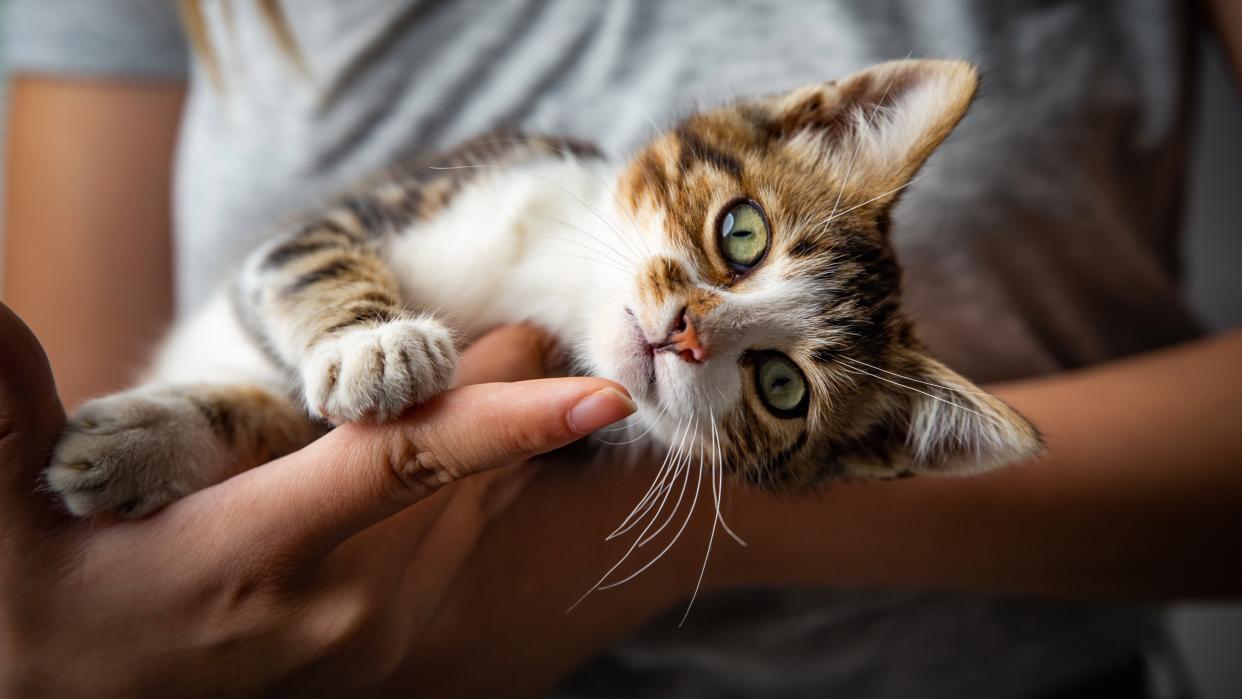
Not only is holding your kitten regularly a wonderful way to strengthen your relationship and show them that you love them, but it will also be a real lifesaver down the road. Getting your kitten used to being handled will help make vet examinations easier and you’ll also find that getting them into their carrier or giving them a flea treatment or oral medication is a much simpler process if they’re used to being held.
9. Clip their claws
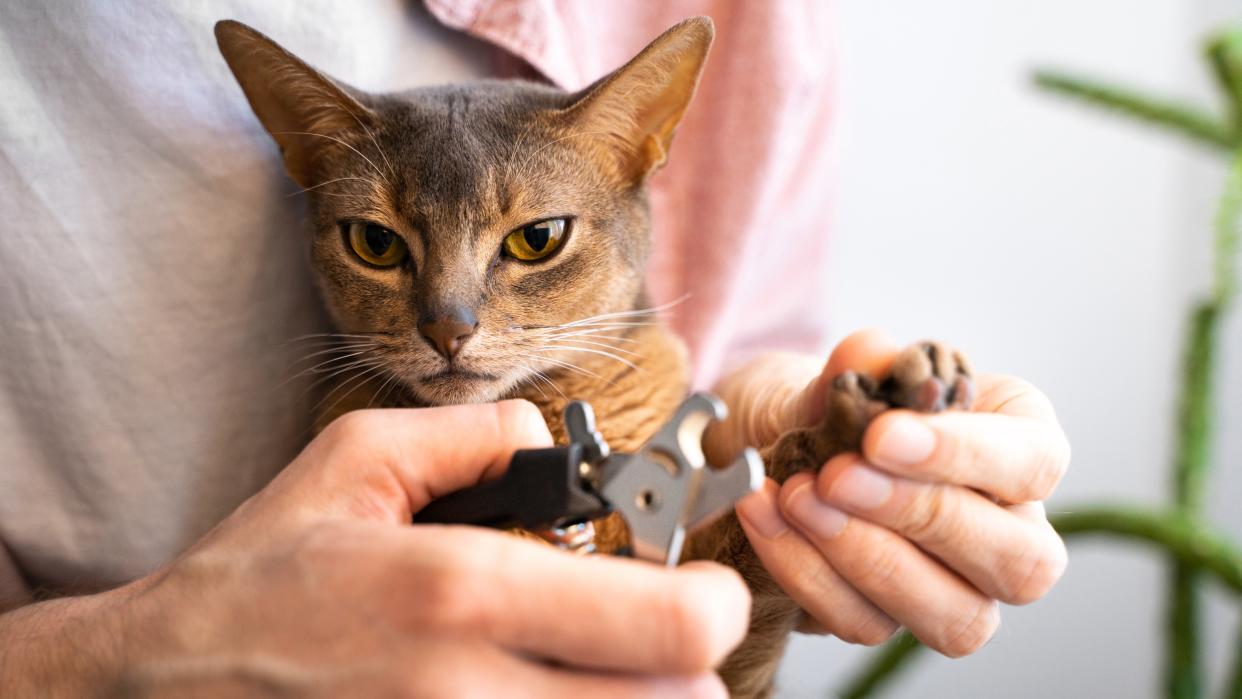
It’s worth introducing nail clipping to your kitten’s routine at a young age to help them get used to it and teach them that the clippers are nothing to fear. You’ll soon get a feel for how often their nails need trimming, but if they’re a purely indoor cat, it’s worth doing them every two weeks. Using one of the best cat nail clippers, will help this job easier for you both.
Well-clipped claws will prevent your kitten’s nails from getting stuck in the carpet and will minimize the damage done to your couch if they decide to use it as a scratching post!
10. Give them unconditional love
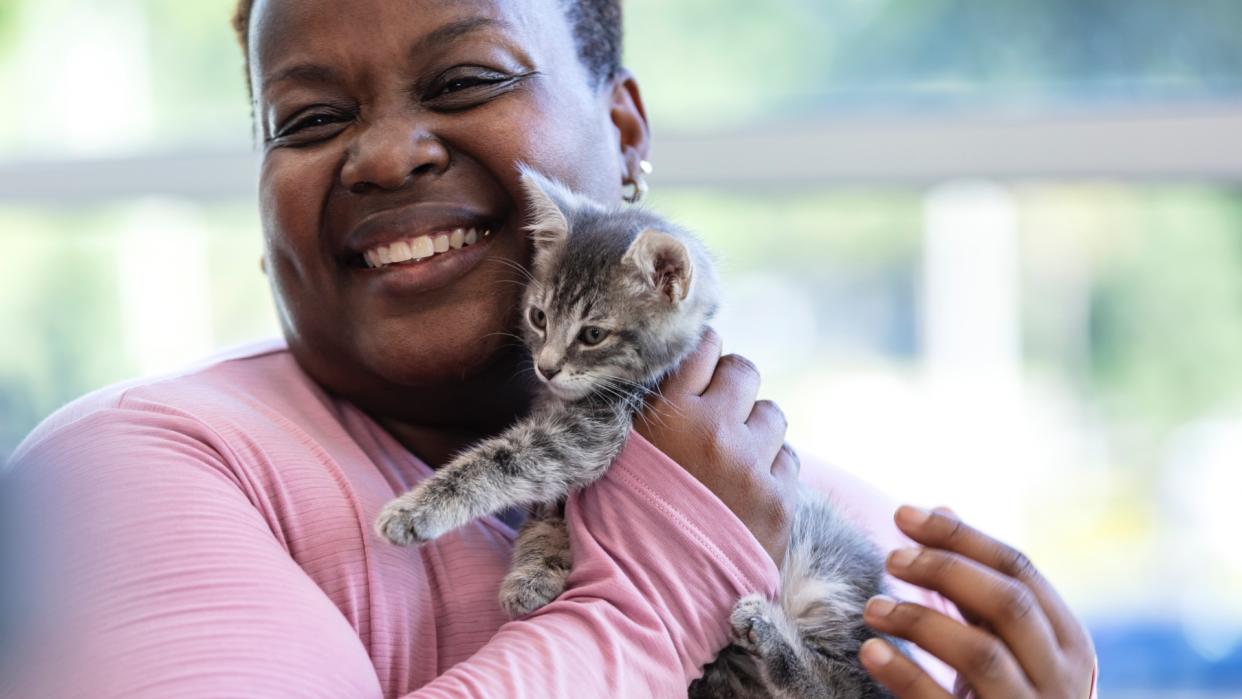
Believe it or not, our kittens struggle with many of the same issues we do, including stress, anxiety, and depression. Providing them with lots of love, affection, and attention can help buffer against these issues and ensure they grow up to be happy, healthy, and well-adjusted cats.
11. Talk softly
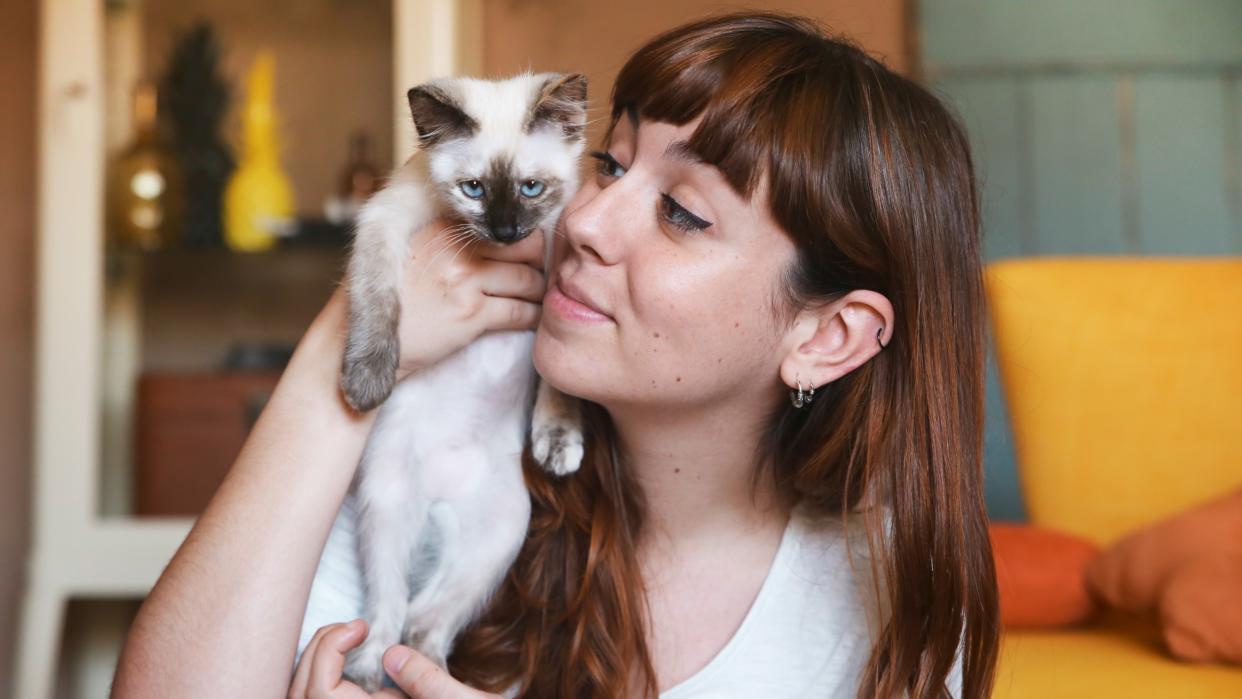
Kittens have incredibly sensitive ears, so speaking softly is important as this helps them to get acclimated to the sound of human voices. If you have young and energetic children, remind them to use a gentle voice when they’re spending time with their little fur friend.
12. Respect their boundaries

Yes, kittens have boundaries too! Just like us humans, your feline family member will have certain things that they like and dislike and will often communicate these preferences using cat body language. For example, your kitten may love curling up next to you but become tense if you try to place them in your lap or carry them around the house in your arms. Become an expert on your kitten and watch your relationship go from strength to strength.
13. Get them vaccinated
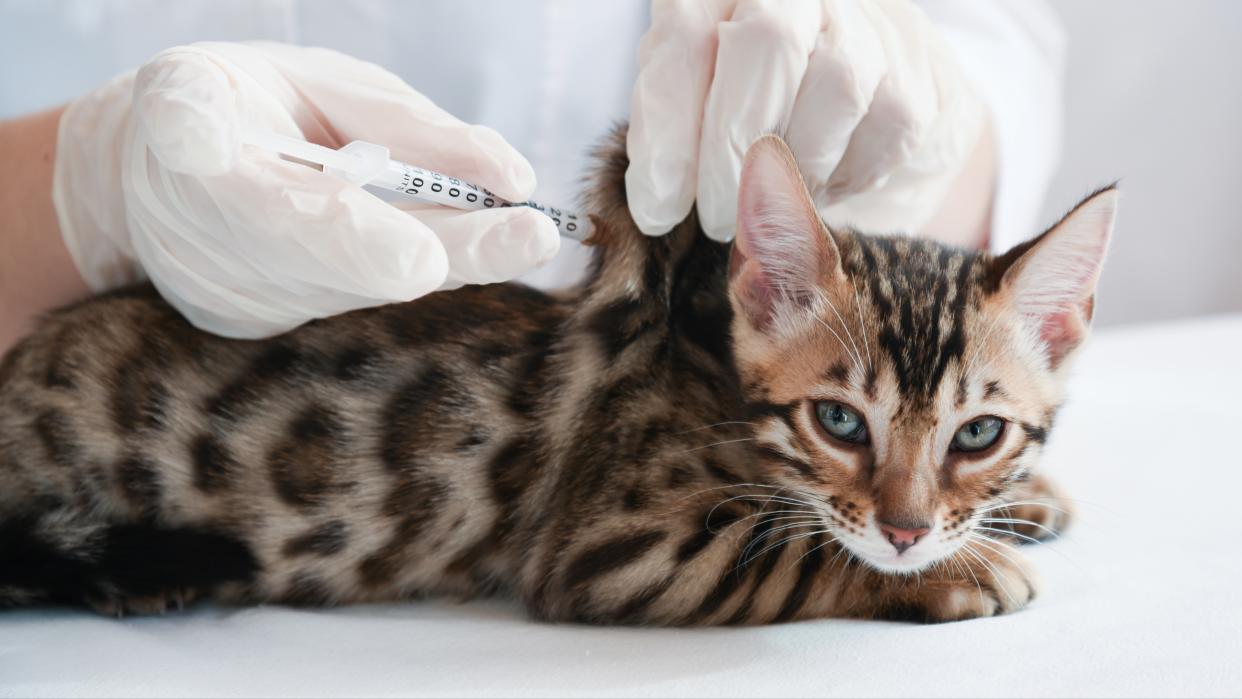
Keeping up to date with cat and kitten vaccinations is one of the best things you can do to ensure your feline friend thrives throughout their life. If you’re not sure which vaccinations your kitten requires and how often they need to have them, speak to your vet who will be more than happy to advise you.
Having the best pet insurance can help offset some of these costs.
14. Socialize, socialize, socialize
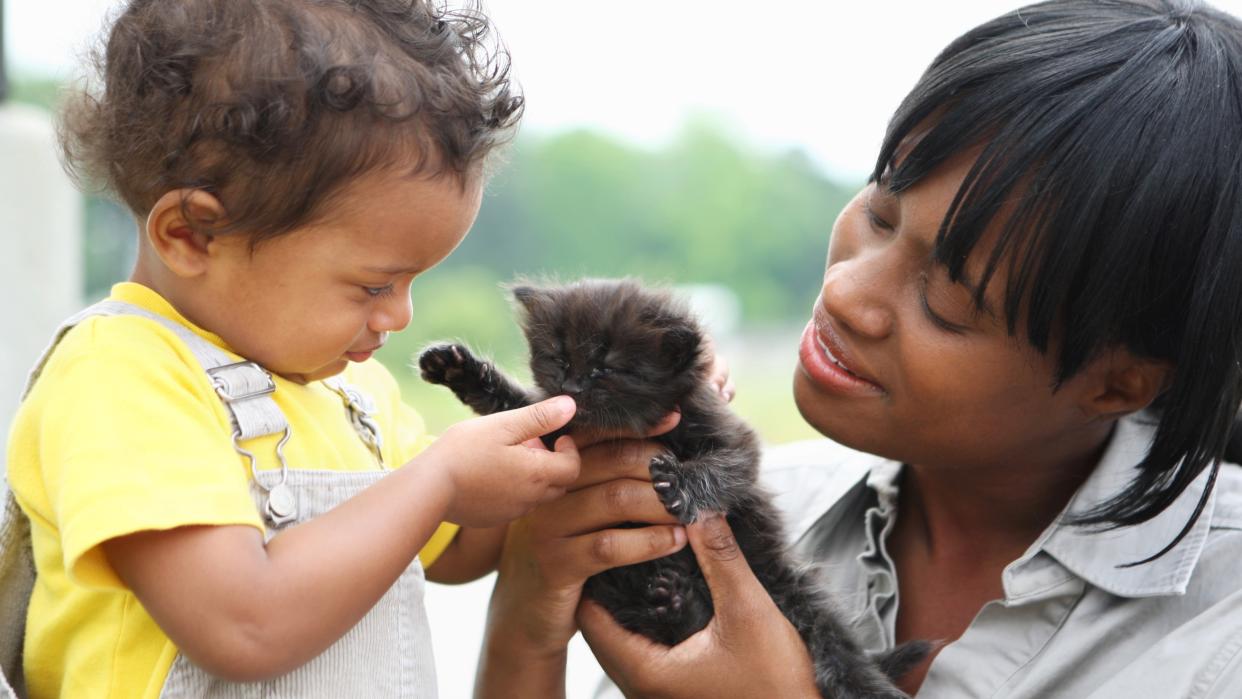
Learning how to socialize a kitten will ensure you’re able to provide your little bundle of fluff with everything they need during this important phase in their development. While a lot of this process will happen before they even leave their littermates, you can continue socializing them at home around adults, children and other pets.
15. Clean their litter box regularly
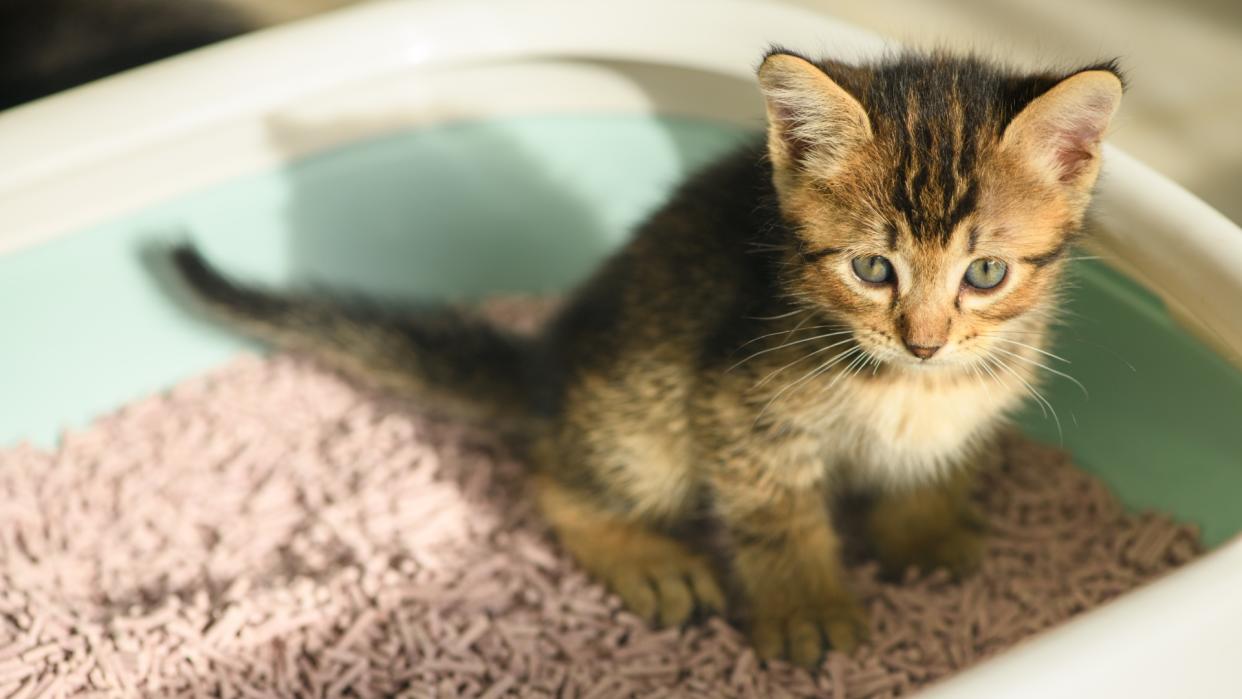
When it comes to how to litter train a kitten, one of our top tips for setting yourself (and your fur friend!) up for success is to ensure you clean their litter box frequently and fill it with the best cat litter.
Cats and kittens prefer a clean restroom and we can’t say we blame them, so scooping out their litter box daily and giving it a gentle wash with warm water once a week will keep your kitten happy.
16. Always have fresh water available
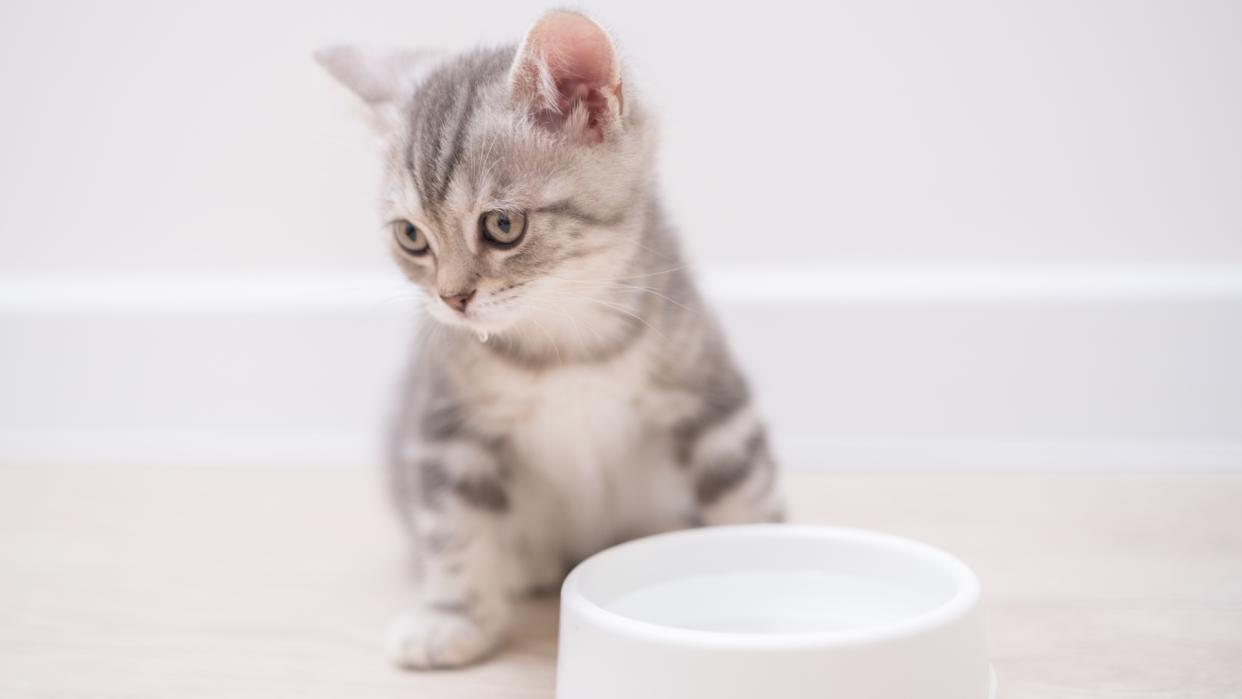
Dehydration in cats and kittens can be a real problem as unlike dogs, they aren’t as good at frequenting their water bowl. Encourage your kitten to drink by always having multiple sources of fresh water available and if you find they won’t drink from a bowl, try a water fountain and see if the clean, running water entices them.
17. Keep a close eye on your kitten

Kitten not eating? Refusing to play? Sleeping more than you think they should or hiding away? Because cats tend to be very good at hiding when they’re unwell, it’s vital to keep a close eye on your young kitten and if you notice any changes in behavior, take them to the vet for a checkup.
It is also worth reading up on the most common illnesses in cats so that you are aware of any possible symptoms.
18. Get them spayed or neutered
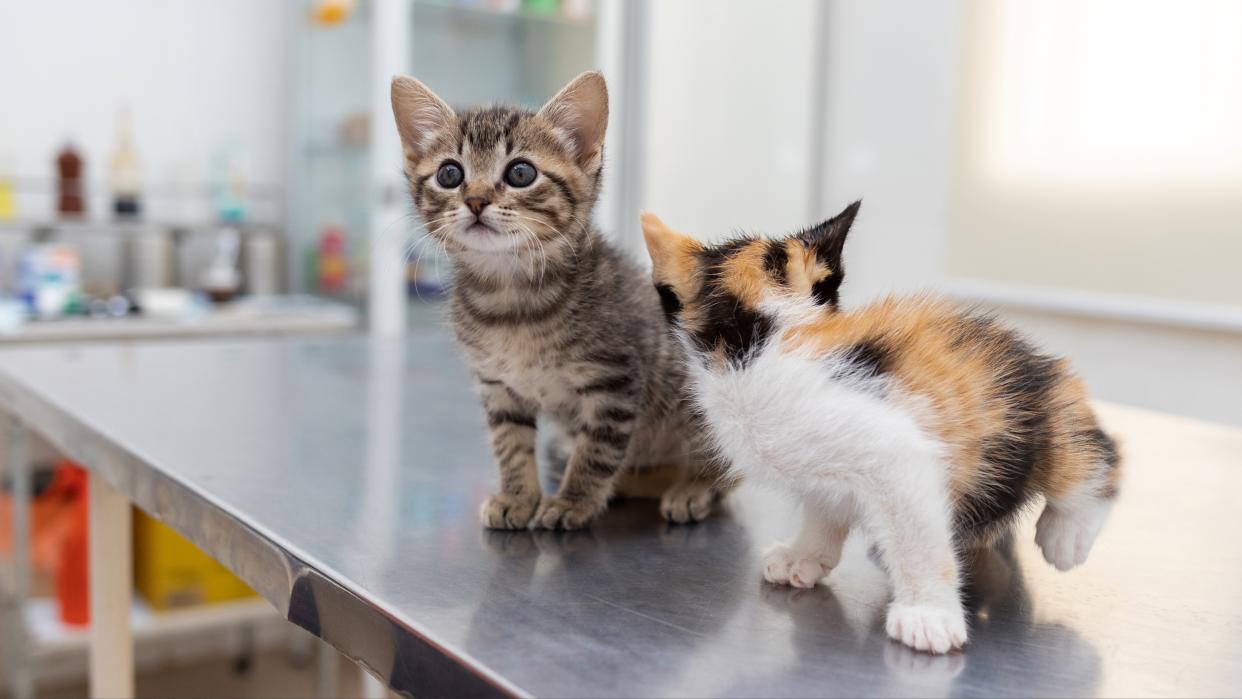
We highly recommend neutering your pet as soon as your kitten is old enough for you to do so. Cats that are fixed won’t go into heat, can’t get pregnant, and are far less likely to fight — so neutering is one of the best things you can do when it comes to keeping your kitten healthy.
19. Make sure they're protected against parasites
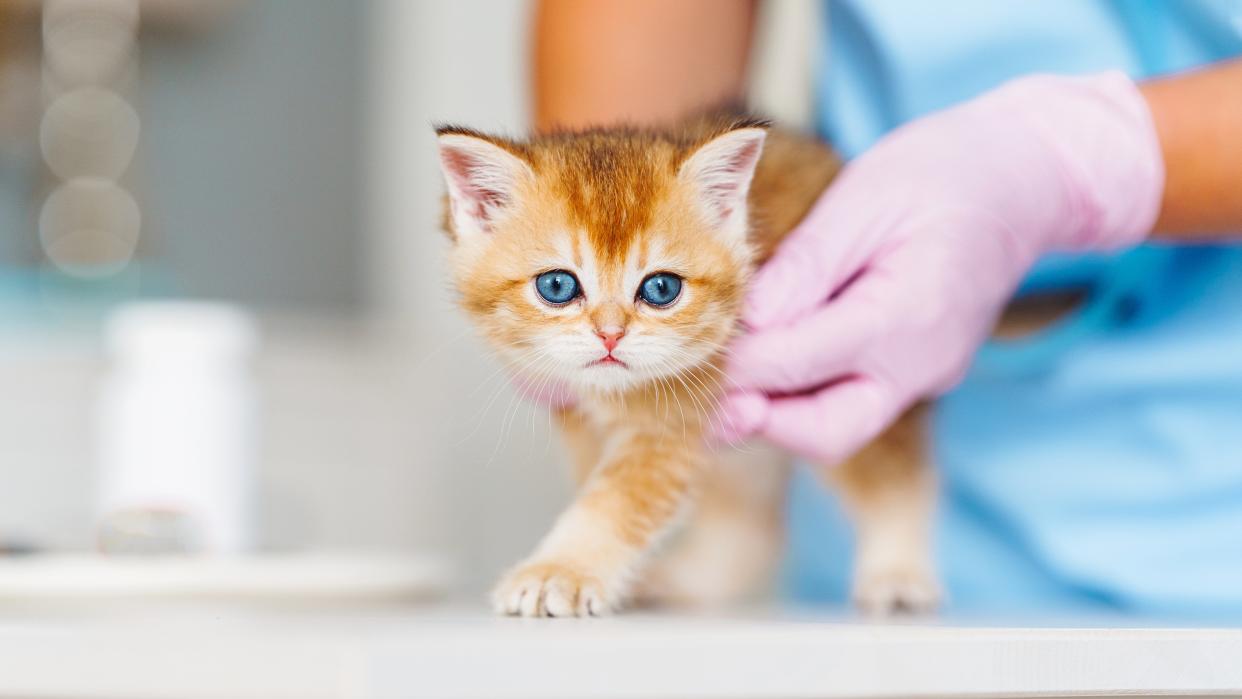
Fleas can cause all sorts of health problems for your kitten, including anemia (blood loss) and skin inflammation. Aside from that, there’s the physical discomfort of being bitten all day long, which can cause your kitten to constantly bite and scratch their fur to try and seek relief. Ensuring you treat your kitten with the best flea treatments for cats will help keep those pesky parasites at bay.
20. Kitten-proof your home
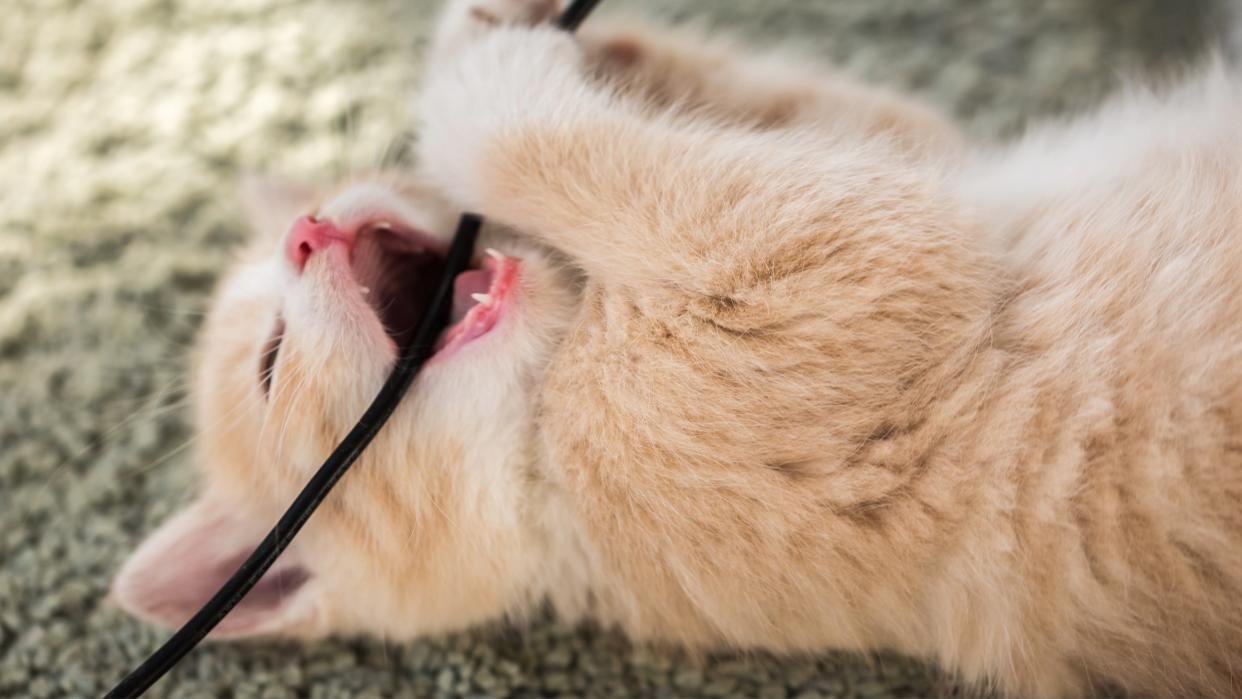
While our homes may not seem dangerous to us, it’s amazing how many common items we all have lying around that can pose a risk to our kittens. Things like cables (which can be chewed on), flowers and plants (many of which are toxic), and plastic bags (which pose a choking hazard) all have the potential to cause a problem for curious paws. Be sure to read up on different ways to kitten proof your home to give yourself peace of mind that your kitty will be safe while playing around the house.
21. Provide them with a place to scratch
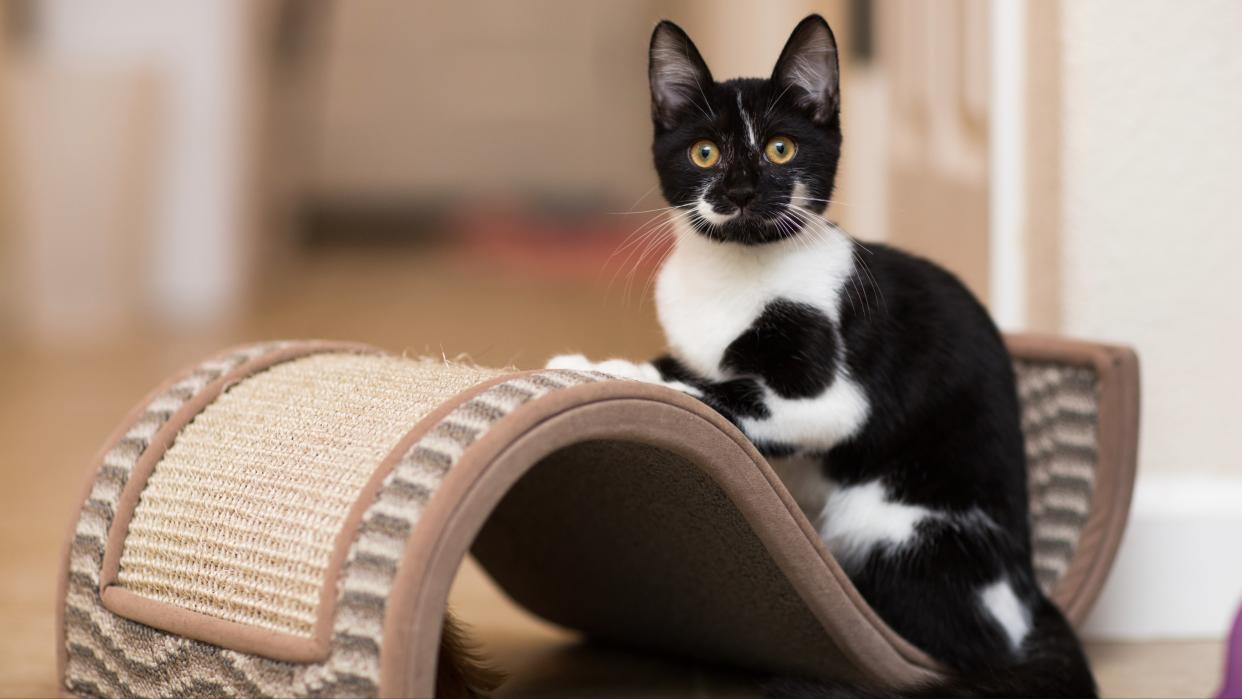
If you want to know how to keep cats from scratching furniture, investing in a quality scratching post that you can introduce to your kitten as soon as you welcome them into your home is one of our top tips.
Giving your kitty a designated scratching space won’t just ensure you save your precious furniture from being covered in claw marks, but it will also let them keep their nails in tip-top condition, all while providing them with a great stretch.
22. Make sure they have a comfortable bed
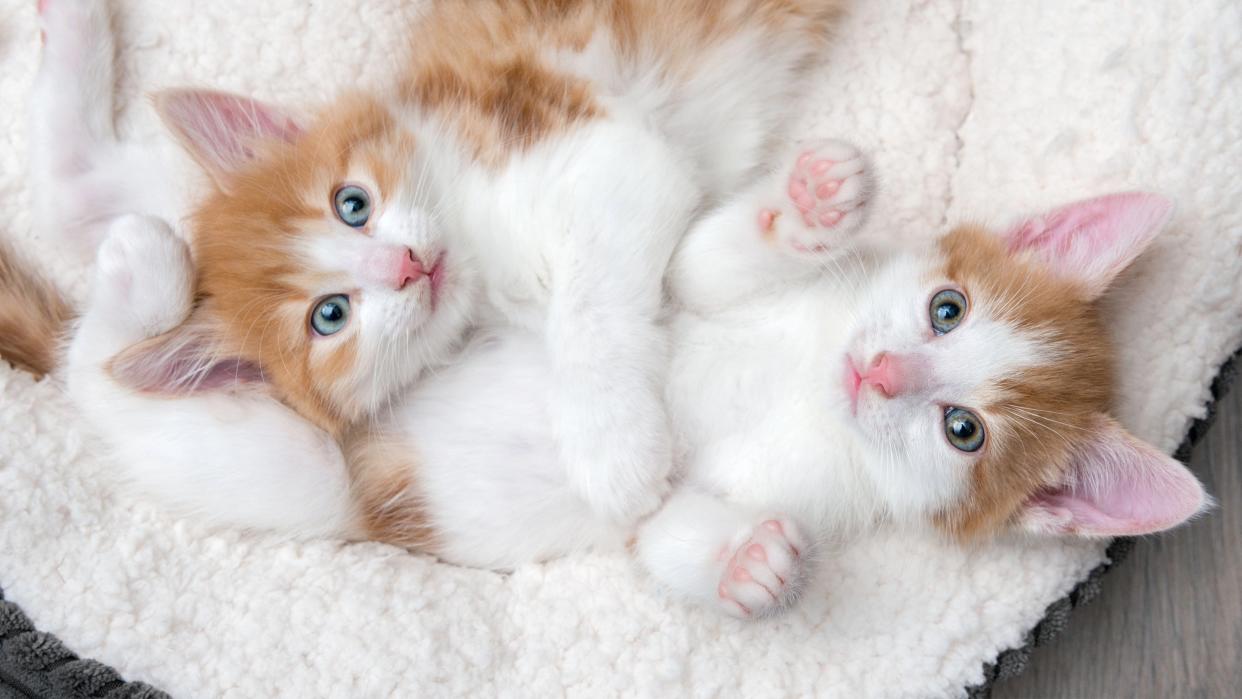
Do kittens sleep a lot? You bet they do! For the first three months of their lives, kittens sleep for a minimum of 18-20 hours a day, and even when they’re fully grown, adult cats will still spend 12-16 hours a day snoozing. So a cozy and comfy bed will be much appreciated!
This is particularly important for kittens as it gives them a quiet spot to retreat to when they’re feeling the need for some alone time or they’re just in need of recharging. After all, growing into a big cat is a very tiring business!
23. Give them time to adjust

It’s not easy going from being with your mother and littermates 24/7 to being thrust into a new environment with people, sounds, sights, and smells you’ve never experienced before. Give your kitten plenty of time to get used to this new normal and don’t rush to form a strong bond with them, all of that will come as you both get to know each other.
24. Brush their teeth
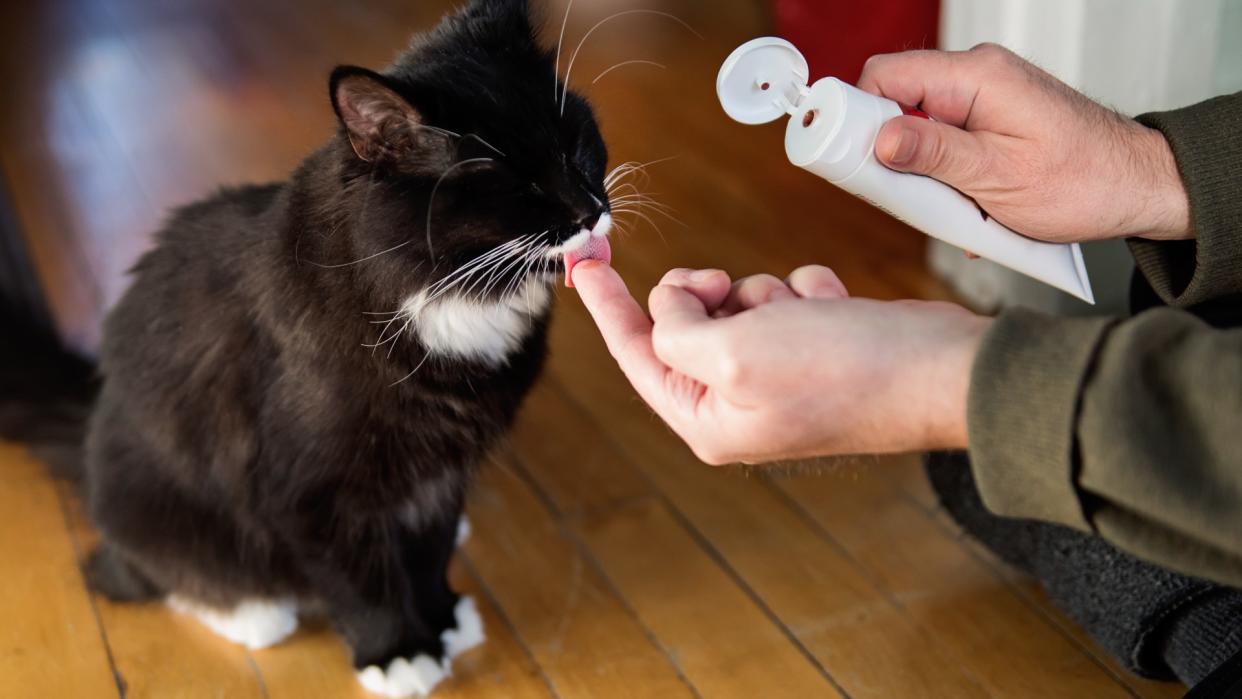
We highly recommend brushing your kitten’s teeth once a day and continuing this into adulthood. Just like us, our feline friends need help to decrease plaque and prevent tartar from building up and while it may take a bit of time to get them used to having this done, you’ll soon find it easy once they’ve got used to the process. You can start with a gentle finger brush to get them used to the sensation and gradually work your way up to a kitten-friendly toothbrush.
25. Watch for common kitten health problems
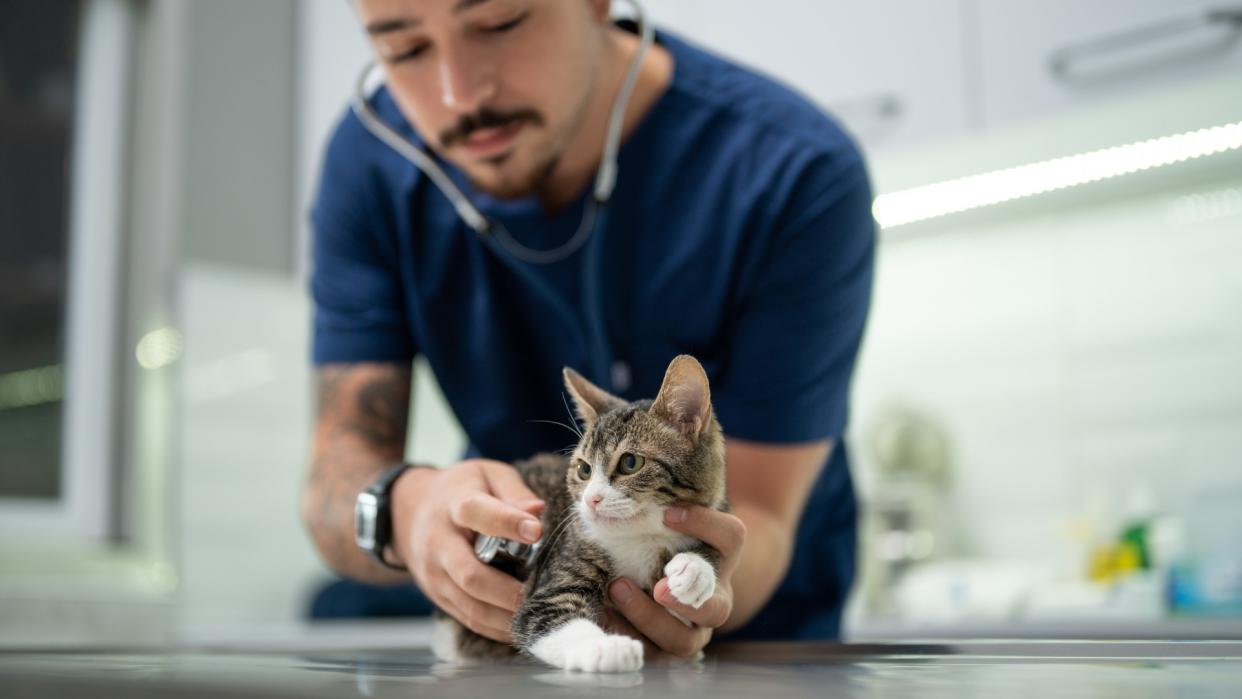
Ideally, when you adopt a new kitten they’ll be completely fit and well and you won’t need to be worried about any health issues. However, some problems tend to appear relatively frequently in young kittens that are worth being aware of, such as upper respiratory infections, ear mites, diarrhea, and intestinal parasites. If you suspect your kitten might be unwell, it’s worth booking an appointment with your vet who will be able to give them a thorough checkup.
26. Provide comfort while you're away
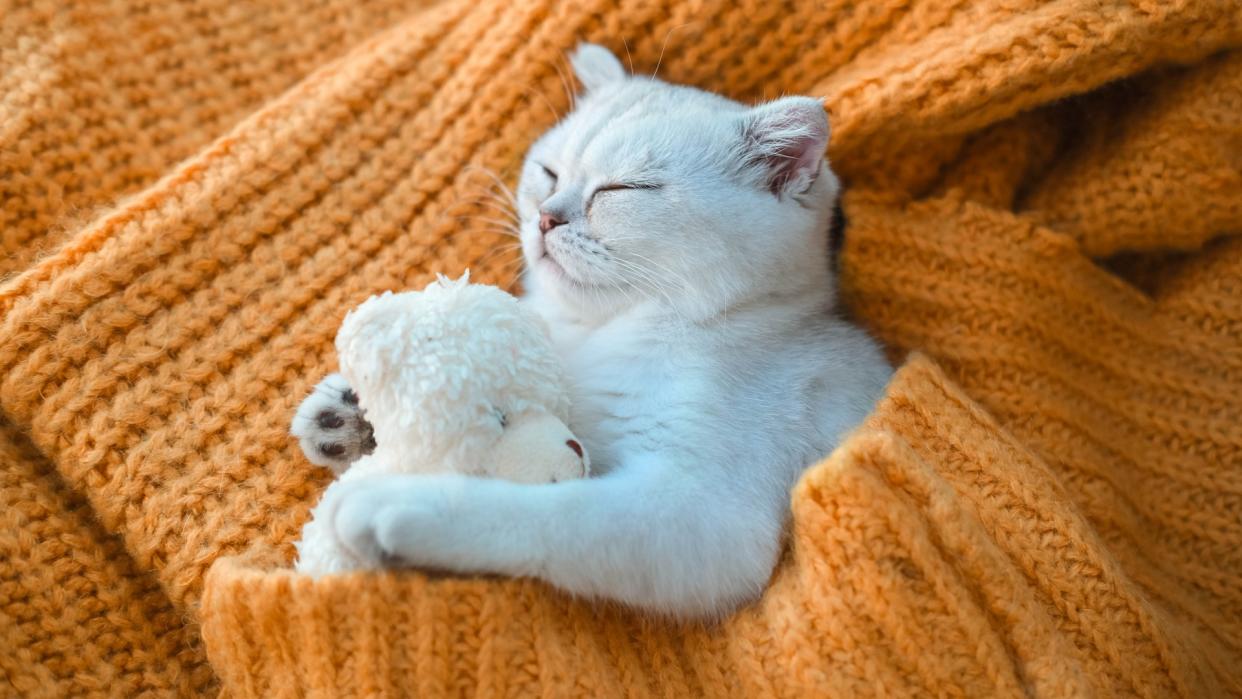
Even with a new kitten in the family, you still likely have a lot of other commitments that you need to deal with on a day-to-day basis, which means you won’t always be able to be available for your new fur friend.
On those days when you’re needing to be out of the house a lot, it can be helpful to leave lots of comforting items around for your kitten. Their favorite toys, a cozy blanket, and even something with your scent on it can all make them feel safe and secure until you return.
27. Get them microchipped
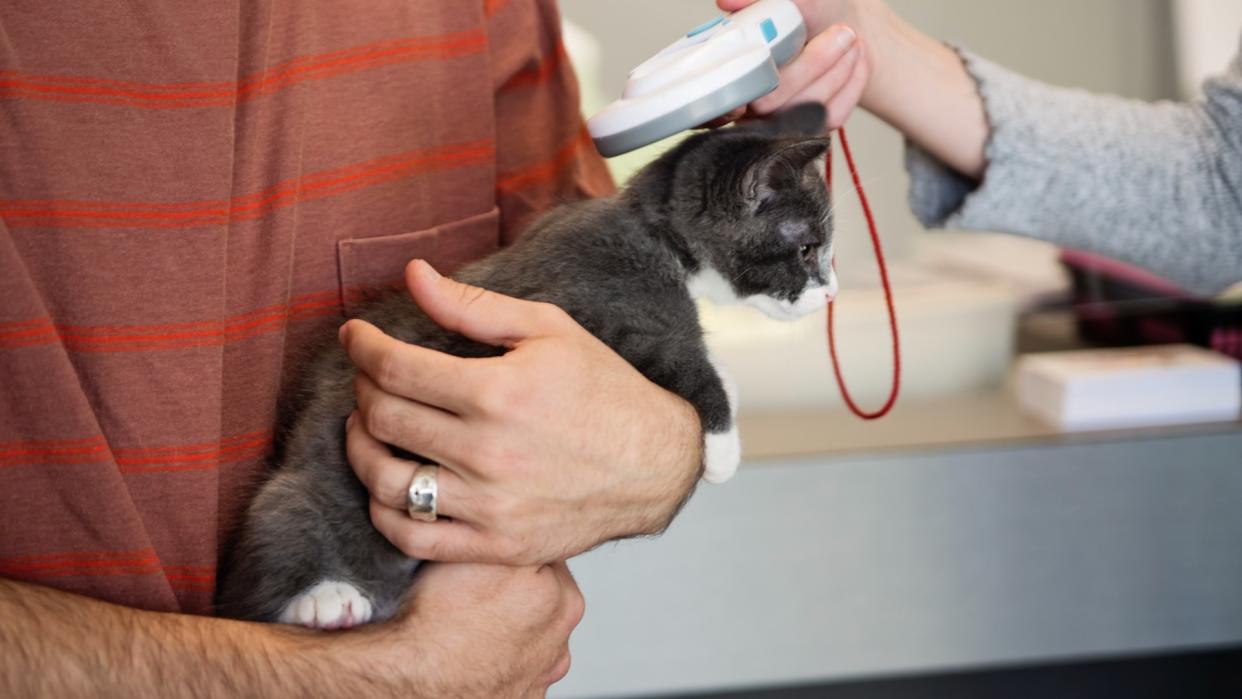
There are so many benefits to getting your kitten microchipped, but the biggest one is ensuring that the two of you can be speedily reunited should your pet get lost or stolen. Although there is an initial cost that comes with this process, microchips last a lifetime, so once you’ve had it done you have peace of mind for the rest of your kitten’s life.
28. Avoid being overprotective
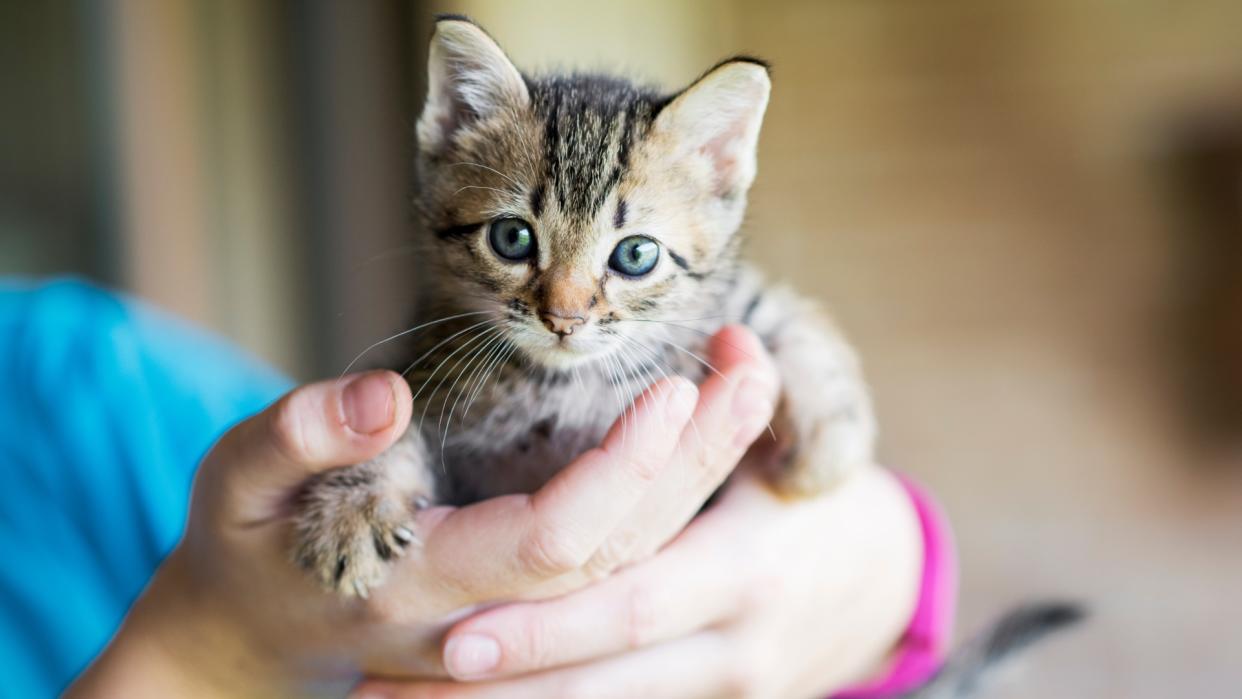
We know, it’s so hard not to want to keep your kitten in your arms all the time when you first get them to stop anything bad from happening — but it’s vital that you resist this temptation and give your kitten some freedom.
Your kitten’s new surroundings may unnerve them at first, but slowly getting them used to new sounds, sights, and smells will ensure they grow up to be comfortable around all sorts of common sensory stimuli.
29. Restrict their space to begin with

When it comes to welcoming a kitten into your home, we’re huge fans of what we call the ‘slow release’. A new environment likely has your fur friend feeling both curious and excited as well as confused and scared — all of which is completely normal. To avoid overwhelming them with too much too soon, keep your kitten confined to one room for the first few days and then gradually allow them to explore more of their new home.
30. Let them rest
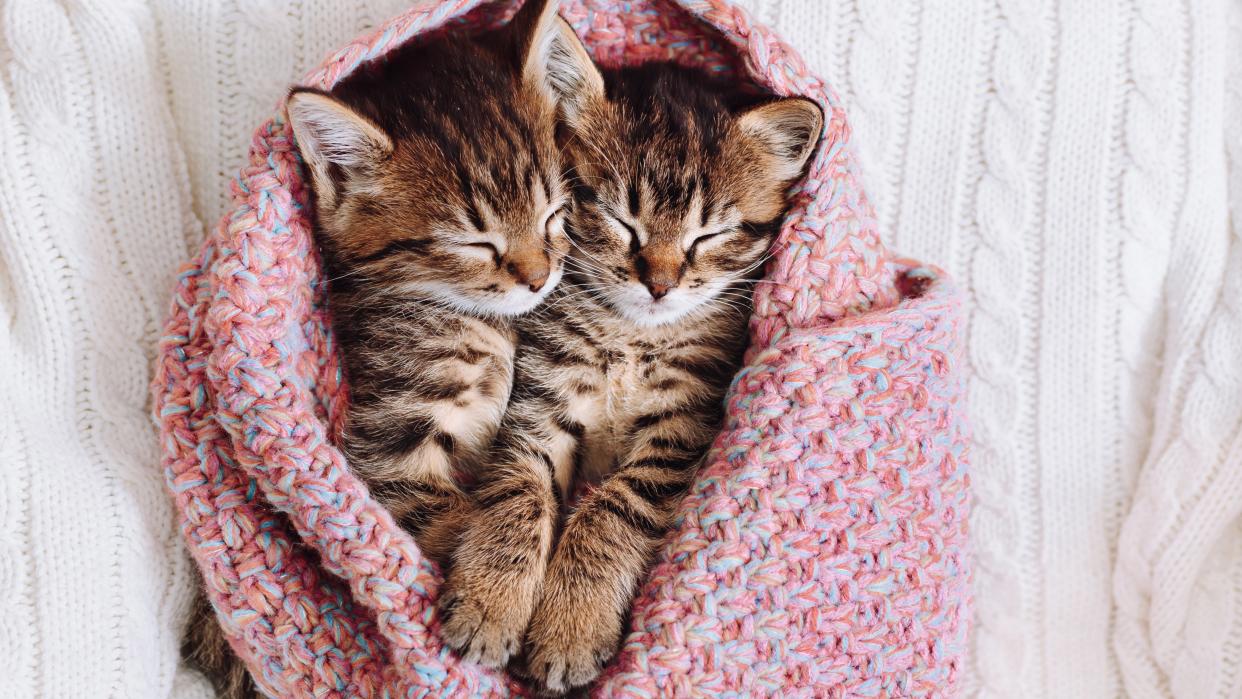
Kittens need a lot of rest to allow their bodies to do the vital work of growing them into an adult cat. Don’t be alarmed if your kitten sleeps up to 20 hours a day (and possibly even more!) in those initial weeks and months of having them in your family, waking for short bursts to eat and play, this is nothing to worry about. As your kitten gets older, they’ll be able to keep their eyes open for longer periods of time, although expect them to still sleep for 50-70% of the day!
31. Provide soft toys when they're teething
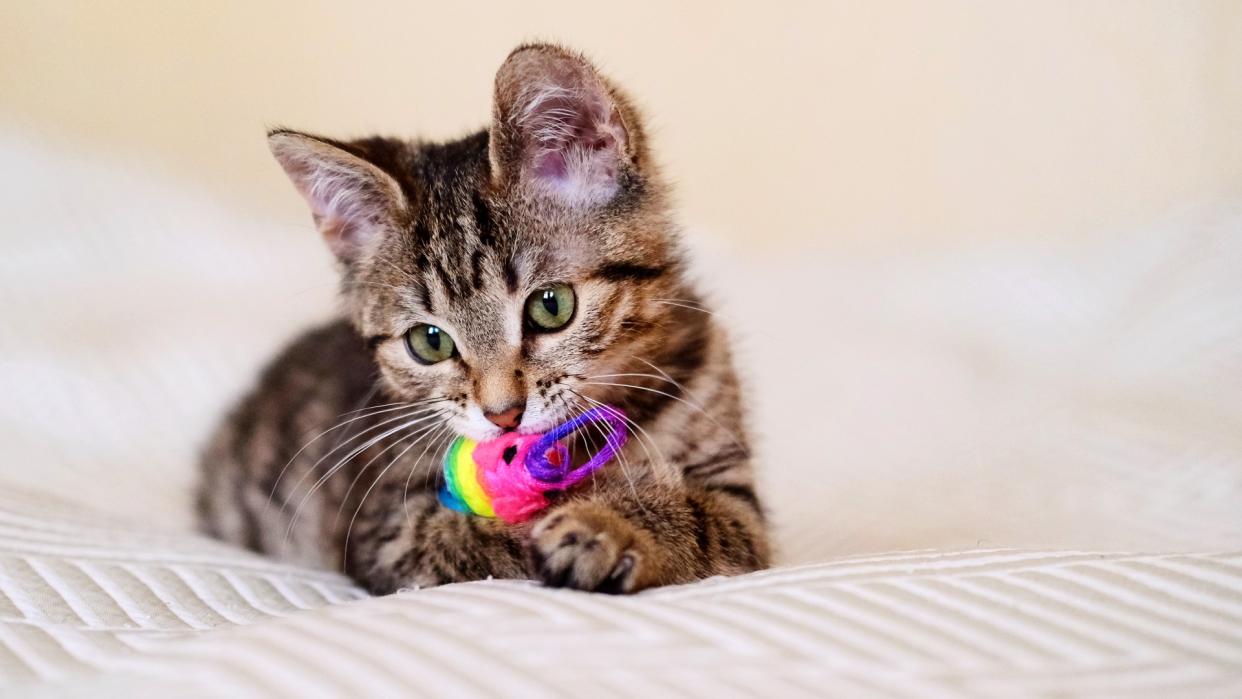
The kitten teething phase starts around three months of age and is usually finished by the time your little one is six months old. During this period, your kitten will lose their 26 baby teeth and replace them with 30 adult chompers. Because this can be a painful time, most kittens will chew excessively on anything and everything they can get their paws on as a way of relieving the discomfort they’re experiencing. You can help make this process easier for them (and save your furniture in the process!) by investing in a few of the best kitten teething toys to soothe sore gums.
32. Offer plenty of mental enrichment activities
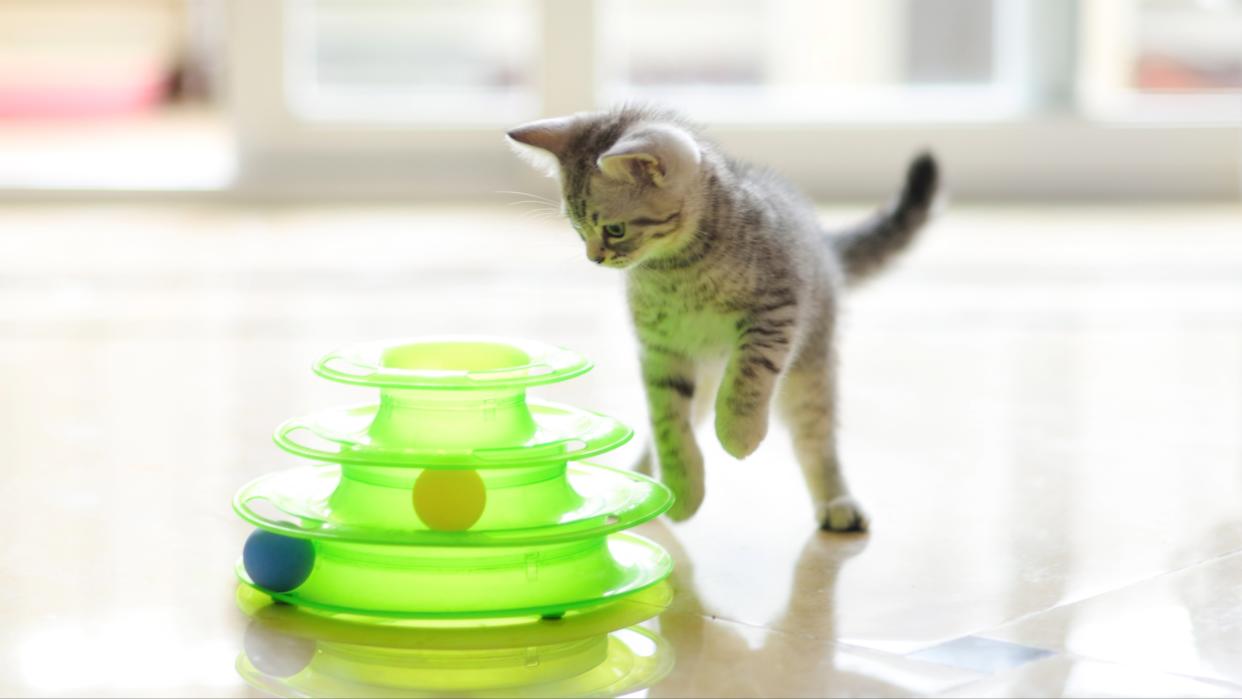
While it’s important that your kitten gets plenty of physical exercise, it’s equally vital that their brains get a regular workout each day. Providing your feline friend with lots of mental stimulation is wonderful for banishing boredom, reducing stress and anxiety, and preventing undesirable behaviors. Puzzle toys and the best interactive cat toys are some great traditional options, but you can also organize treasure hunts using treats and play games like hide and seek and even fetch!
